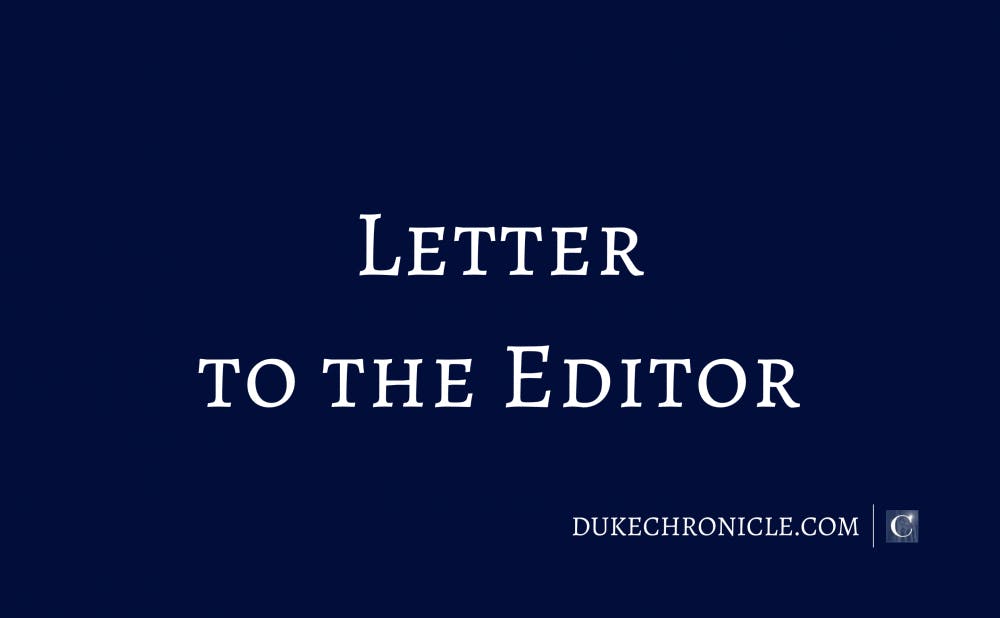To the Editor:
Your editorial regarding merit-based scholarships at Duke lacks much contact with the reality of these programs. Directors of these programs over the last 18 years (of which we were two) can confirm that that “the parameters for merit" are far from “subjective, contextless and uncritical” and that “discussions of racial inequity” are ever present in the selection process. A glance at the demography of successful candidates for the merit scholarship programs at Duke makes it manifest that these programs do not “perpetuate academia’s chronic underrepresentation of students of color, particularly black students.”
The real facts about the selection and recruitment process are quite to contrary of that suggested by your convoluted prose: “The absence of Black students in the [A.B. Duke program] potentially upholds a narrative in which black students could not be among the best nationally and internationally and can only exist as exceptional and meritable through the channel of racially specific programs like the Reginaldo Howard Scholars Program.” You may wish to speak to members of the student recruitment committees and 25 years of faculty directors of the merit scholarship programs to confirm these matters.
Despite your claim, “the screening process for merit scholarships” has always been aimed “to target the root causes of socioeconomic inequality.” Weighting for inequality of opportunity has long been the most critical variable in assessing degrees of achievement.
The real problem facing Duke and the merit scholarships is that the universities with which these programs compete for students—Harvard, Princeton, Stanford—all offer every high achieving student with need the same financial package the Duke merit scholarships provide. Money alone no longer brings any of the academically most meritorious students to Duke. The greater cachet of these other institutions matters, especially to first generation university students. It is only the programmatic enrichment of the merit scholarship—delivered by Duke faculty who have directed these programs—that successfully recruits students, whether minority or not.
Alex Rosenberg is a professor of philosophy and the director of the A.B. Duke Scholarship Program, 2006-2012. Michael Gillespie is a professor of political science and the director of the A.B. Duke Scholarship Program, 2012-2018.
Get The Chronicle straight to your inbox
Sign up for our weekly newsletter. Cancel at any time.

